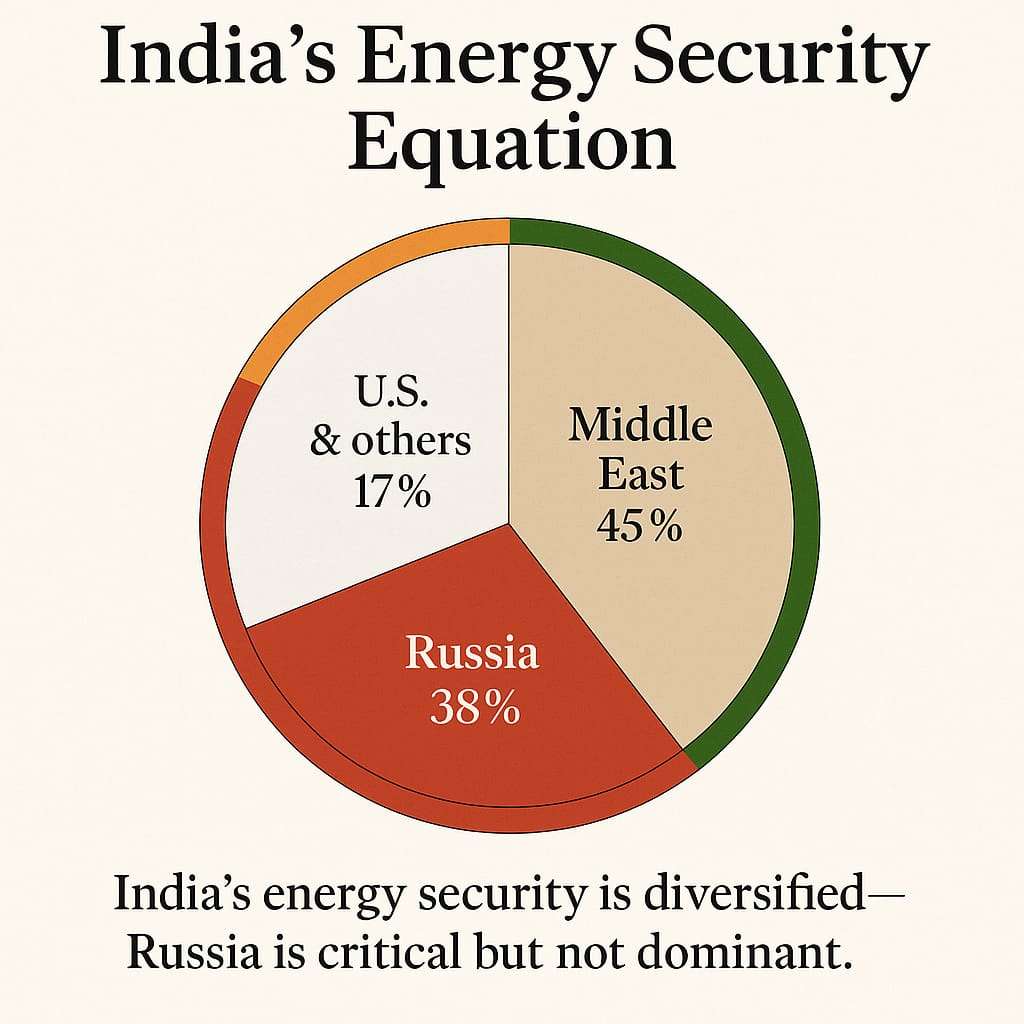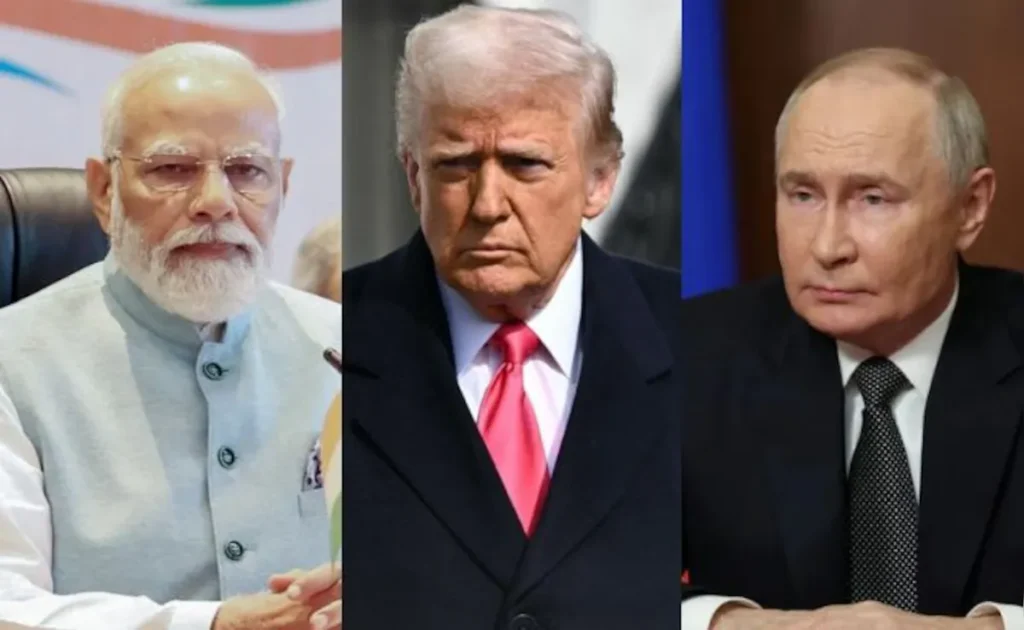In the latest twist to the geopolitical contest over Ukraine, Russian President Vladimir Putin is reported to have reminded U.S. President Donald Trump that New Delhi and Beijing cannot be treated as scapegoats for Washington’s anxieties. This follows Trump’s claim that India is “fuelling” the Ukraine conflict by continuing trade and engagement with Moscow.
India as a Convenient Target
For Trump, who is seeking to reassert American primacy in a shifting global order, India has become a convenient talking point. By suggesting that India’s energy imports and balancing diplomacy “prolong” the Ukraine war, he frames India not as a sovereign power pursuing its national interest, but as an obstacle to U.S. strategic goals. The critique ignores both the scale of India’s energy needs over 5 million barrels of oil consumed daily and its commitment to diversify supply chains in an era of volatility.

Putin’s Strategic Counter
Putin’s intervention is significant. By telling Trump that leaders like Prime Minister Narendra Modi and Chinese President Xi Jinping deserve respect in dialogue, he underscored Moscow’s narrative of a multipolar world. For Russia, India remains a crucial partner not only in hydrocarbons but also in defence procurement, technology transfer, and diplomatic forums such as BRICS and the SCO. Putin’s defence of India is, therefore, both political and economic , framing New Delhi as an autonomous actor rather than a junior partner in Western designs.
The China Factor
Beijing’s position, meanwhile, remains nuanced. China has consistently called for “dialogue and ceasefire” while deepening its energy and technology partnerships with Russia. Unlike India, however, Beijing faces no direct pressure from Washington over its Russia ties, reflecting the asymmetry in U.S. policy. For New Delhi, this divergence is instructive: Washington often singles out India while soft-pedalling on China, despite Beijing’s far larger trade and technology links with Moscow.
Beyond the Rhetoric
Trump’s remark also highlights a broader trend in American politics, outsourcing blame. By projecting responsibility onto India, he deflects attention from the limitations of Western sanctions and the resilience of global energy markets. Analysts note that U.S. oil firms themselves have increased indirect dealings with Russian intermediaries, while Europe quietly continues to import refined products of Russian origin via third countries, including India.
India’s Calculated Autonomy
India’s policy is clear: strategic autonomy must prevail. While supporting a cessation of hostilities and humanitarian aid, New Delhi refuses to compromise its energy security for political optics. Its balanced approach buying discounted oil, maintaining defence ties with Moscow, deepening Quad cooperation with the U.S., and engaging China in border negotiations illustrates a diplomatic pragmatism rooted in national interest rather than ideological alignment.
A Signal of Changing Equations
Putin’s defence of Modi against Trump’s criticism is not merely rhetoric. It reflects the realignment of great-power politics, where India is seen as indispensable by both Washington and Moscow, yet judged harshly by the former when its choices do not align with U.S. expectations. As the global order drifts from unipolarity to multipolarity, India’s insistence on charting an independent course will continue to test American patience, while reinforcing Russia’s need for New Delhi as a stable, long-term partner.

